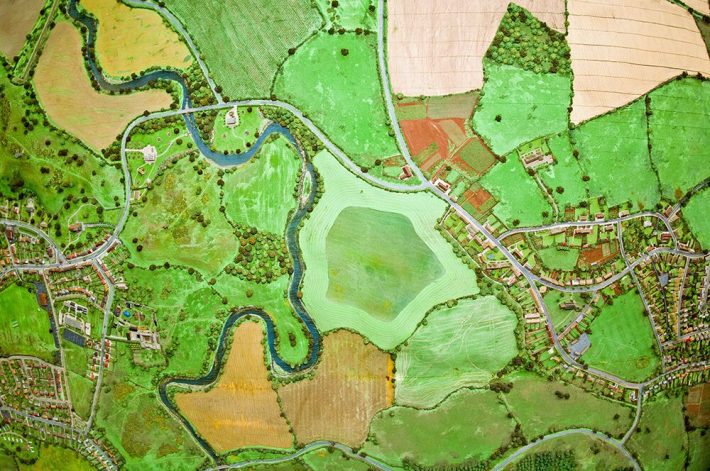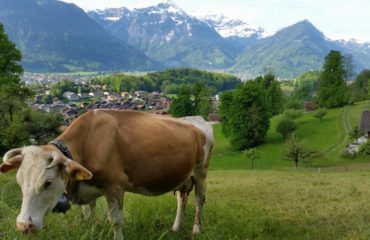Making Brexit work for the environment and livelihoods: A stakeholder informed vision

This post was originally published on the British Ecological Society blog and is based on an article recently published in the academic journal People and Nature.
It has been clear since the 2016 referendum that Brexit would require new agriculture and fisheries policies. Even under the so-called ‘soft Norwegian’ Brexit option, the UK will be outside the EU’s Common Fisheries Policy and Common Agricultural Policy. It is consequently a cause of regret that despite last week’s landmark Supreme Court ruling, the previous prorogation of Parliament further delayed the UK’s Agriculture Bill and Fisheries Bill, which aim to develop new post-Brexit policies and funding regimes in these issue areas. The prospect of no-deal Brexit looms on the immediate policy horizon. Farming and fishing communities who need certainty to facilitate longer-term investment find themselves facing further uncertainty while the politics at Westminster plays out. But what do these communities want to see in new policies – what are their long-term priorities and do they care about the environment?
To address these questions, academics from the Universities of York, and Queen’s University Belfast brought together stakeholders from the agri-food and fisheries sectors to explore their hopes and fears for the future. Drawing together the views shared at the event and in questionnaires, and best practice from the literature, we developed a new stakeholder informed vision for the future design of agriculture and fisheries policies in the UK.
A striking finding of our engagement with stakeholders across both sectors was the prevalence of the belief that sustainability should be at the heart of new policies. It is well established that both the Common Agricultural Policy (CAP) and Common Fisheries Policy (CFP) have had deleterious environmental effects: overproduction and intensive farming have had negative effects upon biodiversity, upon the presence of pollinators and eco-systemic functioning; while overfishing has damaged stocks, food webs and seabed habitats. Against this background, it is perhaps unsurprising that our stakeholders recognised the importance of putting in place measures to make future policies more sustainable, both in terms of protecting the environment and the livelihoods of rural and coastal communities.
Central to the vision of a sustainable green Brexit is placing environmental sustainability, an ecosystems approach, public good provision and social welfare at the heart of policies. Crucially Brexit can offer the opportunity to move away from top-down policies that can seem remote to those most affected by them. To avoid the pitfalls of previous policies, the government must develop bottom-up approaches to policy that engage and involve stakeholders in meaningful ways.
Agricultural policy
On agriculture, our stakeholders were broadly in favour of the ‘public money for public goods’ approach outlined by the May Government. However, it is also clear that actors interpret the term differently. Environmental organisations tend to focus upon services such as flood mitigation and soil health, while agricultural stakeholders focused more upon food security. Greater clarity is therefore required from the government on what exactly is meant by public goods and on how a future payments system will work.
In addition, our stakeholders were in favour of a strategic approach to agri-environmental policy encompassing three elements.
- First, a land-use strategy in which agriculture policy is embedded in a wider landscape perspective that focuses upon the delivery of ecosystem services and habitat and biodiversity protection.
- Second, a food strategy that places quality and welfare at its heart, and is based upon a sustainable approach to farming that ensures a good deal for farmers. Here inevitably the government’s scope for action will be shaped by whatever deal is struck with the EU or perhaps the US. Both the previous and current Secretary of State for the Environment signalled that UK food and welfare standards will not be weakened as a consequence of Brexit, although they may be changed, but it is unclear how tenable this position is in the event of a no-deal.
- Third, and crucially, an overarching rural development strategy that supports inward rural investment, business innovation, the diversification of rural economies and a focus upon rural conservation activities.
Overall, there is a strong need for strategic thinking about what we want out rural communities to look like and how we can best deliver an environmentally and socially sustainable vision for the future of the countryside. Crucially there also needs to be coordination across the UK to ensure constructive dialogue between England and the devolved nations so that all parts of the UK are committed to high standards, even if policy diverges.
Fisheries policy
Turning to fisheries, it is fair to say that fish have become iconic in the Brexit debates due to campaigns to take back ‘British fish’ and seize the ‘seas of opportunity’. But our stakeholders and analysis revealed a much more complex picture.
While some in the catching sector see Brexit as a chance to gain more quota, most small boat operators (which make up the majority of the UK fleet) are more concerned about maintaining frictionless trade with the European Union, by far the biggest market for their catch. Likewise, the seafood processing sector, which is actually worth much more than the catching sector, is also concerned about trade and access to the European workforce that keeps many of its operations viable. It is therefore vital that post-Brexit negotiations with the EU, aimed at securing more fishing opportunities for UK vessels, take a balanced and strategic approach. From a scientific point of view, co-operating with our neighbours over the management of the 100+ fish stocks that we share with them will also continue to be essential.
Brexit does provide an opportunity for the UK to become a world leader in fisheries management, and emerging legislation, such as the Fisheries White paper and Bill, paint a positive picture in this regard. But while these documents are grand in vision, they are light on detail. It is essential that new policies are both ambitious and accountable; they must exceed EU efforts towards sustainability while maintaining commitments to effectively manage Marine Protected Areas and reduce fisheries discards.
Vision
Based on our analysis of stakeholder perspectives, policy developments, and the wider literature, we have developed a ‘Stakeholder-led Vision’ (Figure 1). The framework proposes an integrated approach to policy development across the agri-environment, fisheries and marine policy sectors, leading to a bundle of benefits that underpin a vision for sustainable prosperity. This integrated approach is based on a five-pillar platform financed through a combination of public, private and charitable sector partnerships.

Conclusion
Given the tumultuous state of UK politics at present, and ongoing uncertainty over Brexit, considerable challenges lie ahead. With emerging policies on the environment, agriculture and fisheries currently lacking real detail, and the government timetable for finalising Brexit arrangements becoming increasingly tight, there is a real risk of weakened environmental protection and standards. We therefore urge the UK government to embrace our stakeholder-led vision in order to ensure environmental sustainability and prosperity for rural and coastal livelihoods after Brexit.
About the authors
Professor Charlotte Burns is a Professorial Fellow in the Department of Politics, University of Sheffield and a co-chair of the Brexit & Environment network. Dr Bryce Stewart is a Lecturer in Marine Ecosystem Management at the University of York and a Brexit & Environment Associate with expertise in fisheries and marine conservation.




